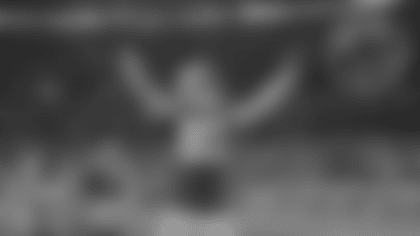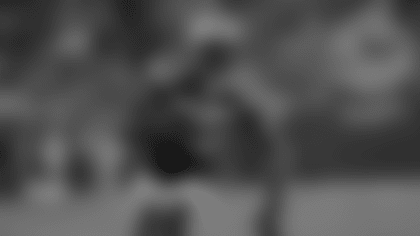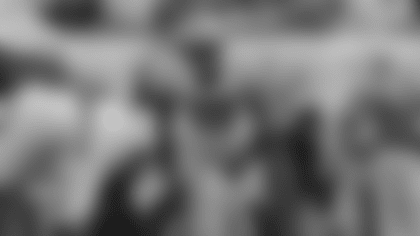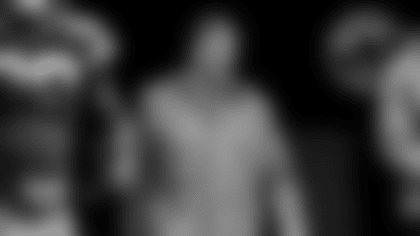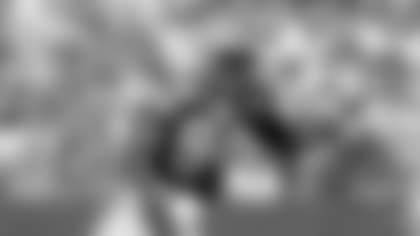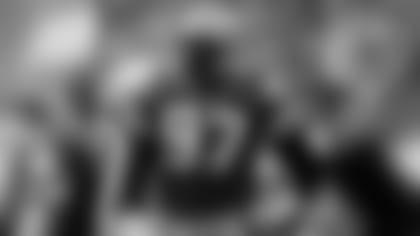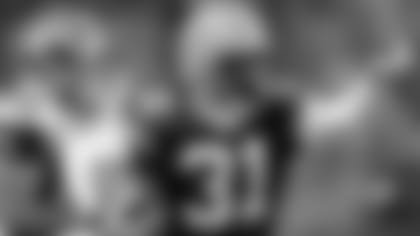As field general of the Vince Lombardi Packers, Bart Starr won five NFL championships, more than any other quarterback over the league's first 96 seasons. He called his own plays, as did almost all quarterbacks of his era, and thanks to his diligent preparation and unfailing memory of Lombardi's weekly directives, Starr became so in tune with his legendary coach he served as an extension of him on the field. In time, Lombardi called Starr "the smartest quarterback I ever saw."
The crowning achievement of Starr's career was what's widely viewed as the signature play in the Packers' storied history: his quarterback sneak in the Ice Bowl.
In many ways, the play was a microcosm of what the franchise has been all about over its first 100 years: Surviving against insurmountable odds and winning championships in numbers no opponent has matched.
Facing Arctic-like conditions and trailing by three points with less than five minutes to go in what was officially the 1967 NFL Championship Game, Starr engineered a drive for eternity.
With the wind chill hovering at minus-46 degrees and glare ice covering Lambeau Field's turf, he marched the Packers 68 yards in 12 plays and scored the winning touchdown with only 13 seconds remaining. Although the sneak was a play he rarely ran, the ever-perceptive Starr suggested it to Lombardi during the preceding timeout.
It was a fitting climax to a storybook career.
Chosen 200th in the 1956 NFL Draft, Starr needed almost four years to win his pro first start and almost five to secure a starting job. He didn't earn his first victory as a starter until Nov. 22, 1959, nine games into Lombardi's first season. It would be almost another year, or six games into the 1960 season, before Lombardi finally turned the team over to him for good.
Up to that point, Lombardi had doubts about Starr's physical limitations, toughness and even leadership qualities. Lombardi questioned if his self-effacing quarterback had enough confidence in himself to instill it in his teammates. But once the quarterback job was his, it didn't take Starr long to turn both Lombardi and his teammates into believers.
The turning point was a game against the Chicago Bears in the third week of the 1961 season.
Under heavy pressure from the Bears' all-out blitzes starting with the opening snap, Starr took an early pounding, including a vicious hit from future Pro Football Hall of Fame middle linebacker Bill George in the second quarter that pierced his lip. With a mouthful of blood streaming down his chin and jersey, Starr uttered a few choice words to George, stayed in the game and proceeded to turn a fierce defensive battle into a 24-0 victory. "I think it was a moment where everybody on the team understood Bart Starr had a lot of steel in his back," said Pro Football Hall of Fame guard Jerry Kramer.
Starr also endeared himself to his receivers by almost always throwing a "catchable" pass. "He could throw flys as well as anybody else, deep down the field where you put arc on it," said Boyd Dowler, one of his starting receivers for 11 years. "But he didn't have a strong arm like Brett Favre or even as strong an arm as Aaron Rodgers. He had as strong an arm as Charley Conerly, Y.A. Tittle, Bobby Layne. It probably wasn't as strong as (Johnny) Unitas, but there wasn't much difference."
By the end of his career, Starr had not only enjoyed unmatched success, but he had been showered with honors. Along with leading the Packers to NFL championships in 1961, '62, '65, '66 and '67, he was named the league's most valuable player in 1966 and MVP of the first two Super Bowls.
Statistically, Starr led the NFL in passing in 1962, '64 and '66. And when he retired prior to the 1972 season, he held NFL records for completion percentage (57.4%) and most consecutive passes attempted without an interception (294 from 1964 to 1965).
After the Packers won their third straight title under Lombardi in 1967, legendary quarterback and recent Minnesota Vikings coach Norm Van Brocklin said, "The Packers at one time had to carry Starr. Now Starr carries the Packers."
Lombardi, who once predicted Unitas, Starr's contemporary and rival, would "go down in the records as the greatest quarterback of all time," took exception when the Baltimore Colts legend was named Quarterback of the Decade for the 1960s. "Johnny Unitas has been a great, great, great quarterback," Lombardi said in February 1970, only months before his death. "But Starr did the winning in the 1960s. And that is the object – to win."
On Oct. 18, 1970, he was honored at Lambeau Field with Bart Starr Day. On Nov. 11, 1973, the Packers retired Starr's No. 15 in another ceremony at Lambeau Field.
In 1977, Starr was inducted into the Pro Football Hall of Fame.
"Bart was rarely the best quarterback in the league on a statistical basis," said Kramer. "But for three hours each Sunday, he was – almost always – the best quarterback in the game in which he was playing."
The Packers unearthed Starr in the 17th round of the 1956 draft. After starting as a sophomore and being called "the best passer" in University of Alabama history by his coach, Harold Drew, Starr was troubled by a back injury throughout his junior season. Then as a senior, he was miscast in a run-oriented offense and benched by a new coach who won four of 30 games and was fired after three seasons.
What prompted the Packers to take a flyer on Starr was a recommendation from Johnny Dee, the Crimson Tide's successful basketball coach.
As a rookie, Starr made an immediate impression on Packers coach Lisle Blackbourn and wound up serving as Tobin Rote's backup. While Starr played sparingly that year, he made his first NFL start on Nov. 18, 1956, in the Packers' final game at old City Stadium.
When the season ended, Starr was called to active duty with the Air Force, only to be discharged in early May due to his lingering back problems. In 1957 and '58, Starr shared quarterback duties with Babe Parilli.
In 1959, Lombardi took over as coach, acquired veteran Lamar McHan in a trade and installed him as the starter for the first seven games. At one point, Joe Francis was the No. 2 quarterback and Starr was third-string.
But after McHan suffered a leg injury in the seventh game, Starr started the final five and the Packers finished 4-1 for their first winning record in 12 years. Starr started the opener in 1960, but played poorly in a loss to the Bears and McHan took over again.
Although the Packers won the next four games with McHan as their starter, Lombardi finally decided to bank his future on Starr, a more stable leader. On Nov. 6, 1960, Starr was reinserted as the starting quarterback and held the job until injuries took their toll late in his career.
Through 1967, in games that Starr started under Lombardi, the Packers went 73-21-4 in the regular season and 9-1 in the postseason.
Starr also was extremely durable during the Lombardi years. His most serious injuries were a hairline fracture on the back of his right hand, which cost him four starts in 1963, and a shoulder issue that cost him two starts in 1967.
Thereafter, the injuries mounted.
In 1968, Starr tore a bicep and missed 28 quarters. The next year, he missed 27 with an elbow injury. In 1970, he missed 16 quarters with shoulder and rib problems. In 1971, his final season, Starr threw only 45 passes.
In all, Starr played 16 seasons with the Packers and shares the club record for service as an active player. In 196 regular-season games, Starr passed for 24,718 yards and finished with a passer rating of 80.5.
Starr served as quarterback coach of the Packers in 1972. He was their head coach and general manager from 1975 to 1980, and head coach only from 1981 to 1983. His record over those nine seasons was 52-76-3. From 1973 to 1974, Starr worked as a CBS television analyst on NFL games.
Born Jan. 9, 1934, in Montgomery, Ala. Given name Bryan Bartlett Starr.
BART STARR:
- Quarterback: 1956-71
- Height: 6-1; Weight: 197
- College: Alabama, 1952-55
HONORS:
- Inducted Pro Football Hall of Fame: 1977
- Inducted Packers Hall of Fame: 1977
- NFL All-Decade Team: 1960s
- Associated Press NFL MVP: 1966
- Super Bowl MVP: Games I, II
- Associated Press All-Pro Team (chosen since 1940): 1966
- Pro Bowl Selection (game played since 1950): 1960, '61, '62, '66
- Packers 50*th* Anniversary Team: 1969
- Packers All-Modern Era Team: 1976
- Press-Gazette All-Century Team: 1999




